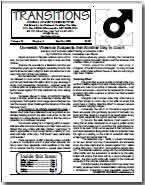Despite President Obama’s 2011 Father’s Day lament on the irresponsibility of “deadbeat fathers” footloose and fancy free from taking responsibility for their children, in fact the two major structural threats to fathers’ presence in children’s lives are divorce and non-marital childbearing. More often than not, fathers are involuntarily relegated by family courts to the role of “accessory parents,” valued for their role as financial providers rather than as active caregivers. This view persists despite the fact that fathers in two-parent families, before divorce, typically share, with mothers, responsibility for the care of their children. This is both because fathers have taken up the slack while mothers work longer hours outside the home, and because fathers are no longer content to play a secondary role as parents. Most fathers today are keen to experience both the joys and challenges of parenthood, derive satisfaction from their parental role, and consider active and involved fatherhood to be the core component of their self-identity.
Whereas parents in general are not supported as parents by our social institutions, divorced fathers in particular are devalued, disparaged, and forcefully disengaged from their children’s lives. Researchers have found that for children, the results are nothing short of disastrous, along a number of dimensions:
-children’s diminished self-concept, and compromised physical and emotional security (children consistently report feeling abandoned when their fathers are not involved in their lives, struggling with their emotions and episodic bouts of self-loathing)
-behavioral problems (fatherless children have more difficulties with social adjustment, and are more likely to report problems with friendships, and manifest behavior problems; many develop a swaggering, intimidating persona in an attempt to disguise their underlying fears, resentments, anxieties and unhappiness)
-truancy and poor academic performance (71 per cent of high school dropouts are fatherless; fatherless children have more trouble academically, scoring poorly on tests of reading, mathematics, and thinking skills; children from father absent homes are more likely to play truant from school, more likely to be excluded from school, more likely to leave school at age 16, and less likely to attain academic and professional qualifications in adulthood)
-delinquency and youth crime, including violent crime (85 per cent of youth in prison have an absent father; fatherless children are more likely to offend and go to jail as adults)
-promiscuity and teen pregnancy (fatherless children are more likely to experience problems with sexual health, including a greater likelihood of having intercourse before the age of 16, foregoing contraception during first intercourse, becoming teenage parents, and contracting sexually transmitted infection; girls manifest an object hunger for males, and in experiencing the emotional loss of their fathers egocentrically as a rejection of them, become susceptible to exploitation by adult men)
-drug and alcohol abuse (fatherless children are more likely to smoke, drink alcohol, and abuse drugs in childhood and adulthood)
-homelessness (90 per cent of runaway children have an absent father)
-exploitation and abuse (fatherless children are at greater risk of suffering physical, emotional, and sexual abuse, being five times more likely to have experienced physical abuse and emotional maltreatment, with a one hundred times higher risk of fatal abuse; a recent study reported that preschoolers not living with both of their biological parents are 40 times more likely to be sexually abused)
-physical health problems (fatherless children report significantly more psychosomatic health symptoms and illness such as acute and chronic pain, asthma, headaches, and stomach aches)
-mental health disorders (father absent children are consistently overrepresented on a wide range of mental health problems, particularly anxiety, depression and suicide)
-life chances (as adults, fatherless children are more likely to experience unemployment, have low incomes, remain on social assistance, and experience homelessness)
-future relationships (father absent children tend to enter partnerships earlier, are more likely to divorce or dissolve their cohabiting unions, and are more likely to have children outside marriage or outside any partnership)
-mortality (fatherless children are more likely to die as children, and live an average of four years less over the life span)
Given the fact that these and other social problems correlate more strongly with fatherlessness than with any other factor, surpassing race, social class and poverty, father absence may well be the most critical social issue of our time. In Fatherless America, David Blankenhorn calls the crisis of fatherless children “the most destructive trend of our generation.” A recent British report from the University of Birmingham, Dad and Me, confirms Blankenhorn’s claims, concluding that the need for a father is on an epidemic scale, and “father deficit” should be treated as a public health issue.
We ignore the problem of father absence to our peril. Of perhaps greatest concern is the lack of response from our lawmakers and policymakers, who pay lip service to the paramount importance of the “best interests of the child,” yet turn a blind eye to father absence, ignoring the vast body of research on the dire consequences to children’s well-being.
What is the solution to father absence? Many fathers’ advocates have stressed the need for fast, low-cost, effective ways for non-residential parents to have their court-ordered parenting time enforced. While access enforcement is important, legislating for shared parenting would be a more effective measure to ensure the ongoing active involvement of both parents in children’s lives. A legal presumption of shared parenting would affirm the primary role of both parents, and make clear that even in the absence of a spousal relationship, both mothers’ and fathers’ parental responsibilities to their children’s needs are “sacred,” and therefore deserving of full legal protection and recognition.
Source: Father Absence, Father Deficit, Father Hunger (http://www.psychologytoday.com/blog/co-parenting-after-divorce/201205/father-absence-father-deficit-father-hunger)


